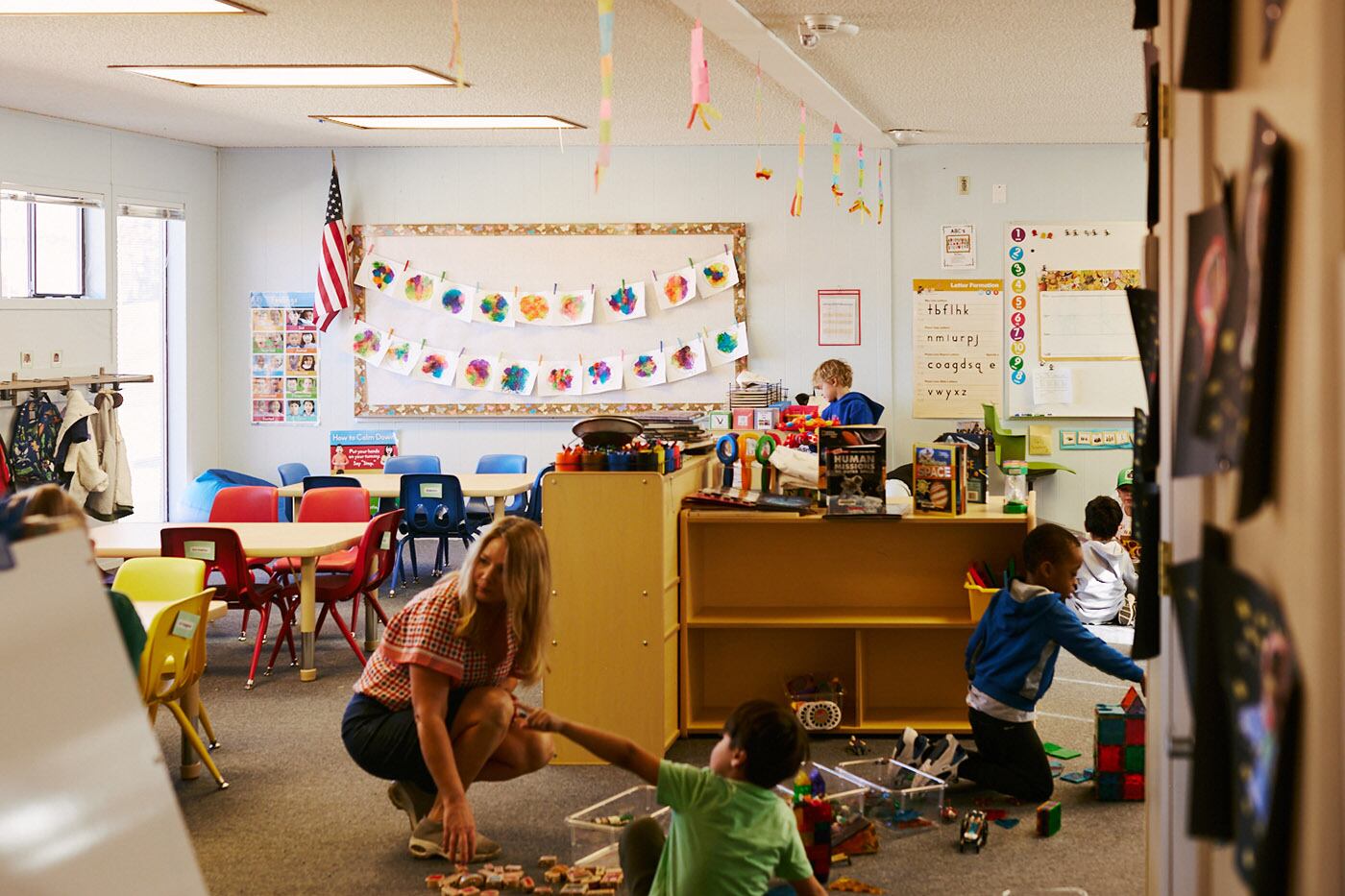A Denver district court judge on Wednesday dismissed a lawsuit brought by several Colorado school districts over the state’s universal preschool program, ruling that the plaintiffs don’t have legal grounds to sue.
In his 20-page ruling, Judge Jon J. Olafson concluded that the six school districts, two education groups, a cooperative education services board, and two families that sued the state last year had not suffered any “injury” covered by state or federal law. The districts, groups, and families had argued that the universal preschool program administration was harming students with disabilities, in addition to other claims.
The decision is a win for the state and for Gov. Jared Polis, who spearheaded the popular free preschool program, which launched last summer after a rushed and rocky planning process. It comes a month after a partial victory for the state in another universal preschool lawsuit — one brought by Catholic preschools who don’t want to enroll children from LGBTQ families. (The Catholic preschools plan to appeal.)
State officials had no comment on Olafson’s ruling Wednesday evening.
Melissa Gibson, deputy executive director of the Colorado Association of School Executives, one of the plaintiffs in the case, said in a statement Wednesday, “We are disappointed by the court’s decision, but we will continue our focus on doing everything possible to advocate for resolution to the issues impacting students and families in the [universal preschool] system.”
She said filing the lawsuit was “a last resort,” and that the plaintiffs will continue to work with the state to push for solutions and transparency.
In addition to Gibson’s group, the plaintiffs include the Consortium of Directors of Special Education, Centennial Board of Cooperative Educational Services, two families, and the six school districts: Brighton-based 27J, Cherry Creek, Harrison, Mapleton, Platte Valley, and Westminster.
They filed the lawsuit against the state last summer, claiming its administration of the universal preschool program was harming children with disabilities and breaking financial promises to families and school districts. In response, the state asked the court to dismiss the suit. Olafson held a hearing on that motion at the end of April.
Olafson acknowledged that the school district plaintiffs had faced “headaches” in adapting to the new universal preschool system, but said “these growing pains are not legally protected injury.”
He also said that some of the plaintiffs’ concerns would be better addressed through legislative or administrative means, rather than through the courts.
During the 2023-24 school year, about 39,000 4-year-olds received tuition-free preschool through Colorado’s universal preschool program — representing 62% of children in that age group in the state. Enrollment is expected to be even higher next year.
Ann Schimke is a senior reporter at Chalkbeat, covering early childhood issues and early literacy. Contact Ann at aschimke@chalkbeat.org.







